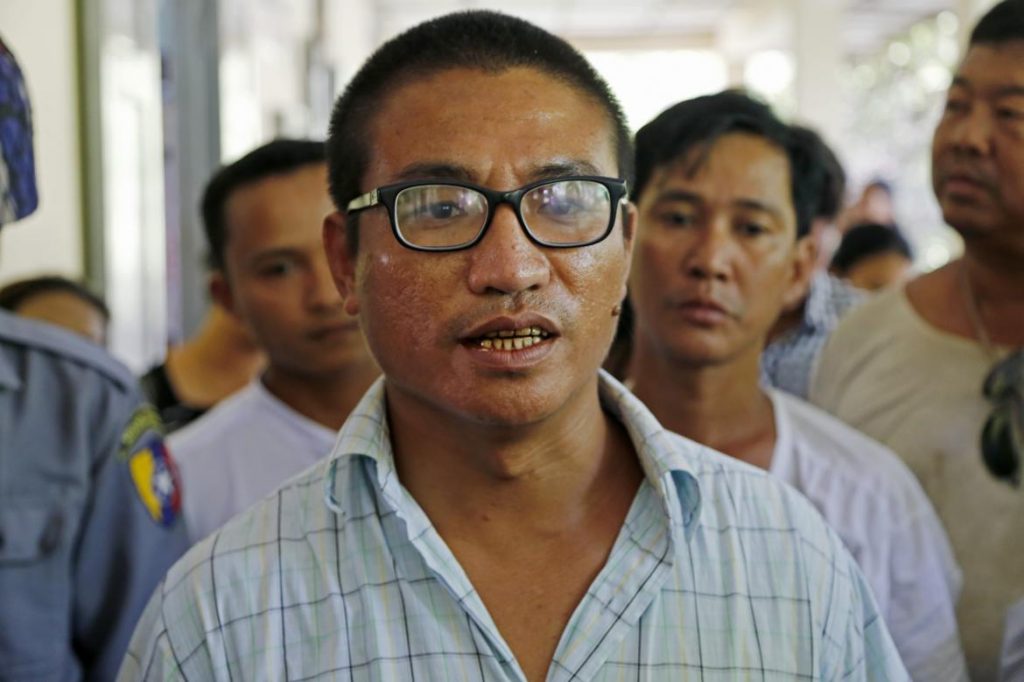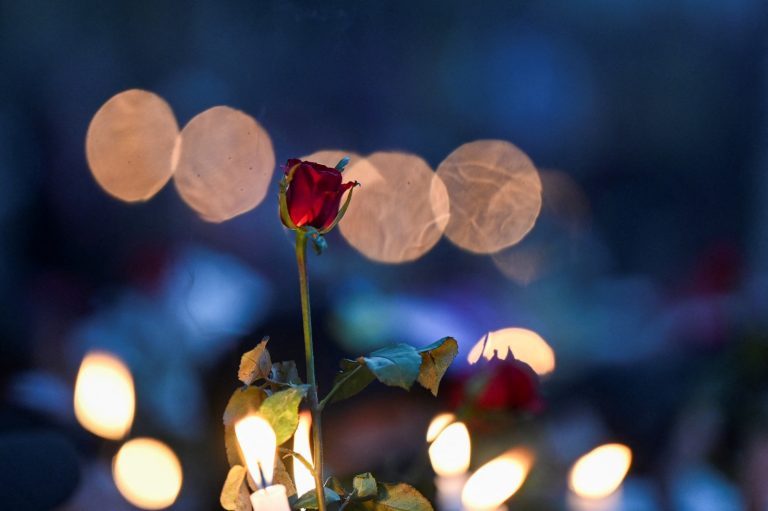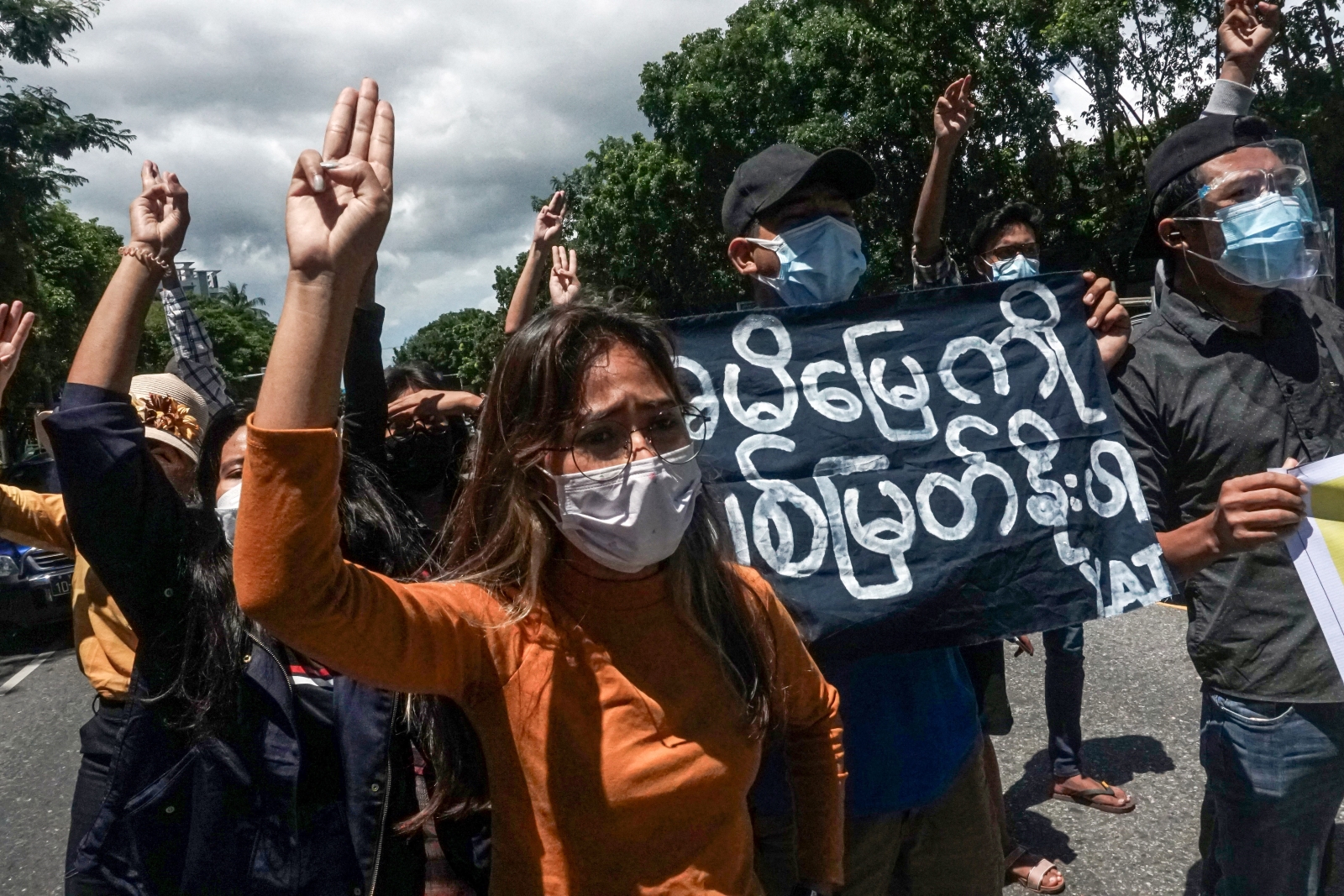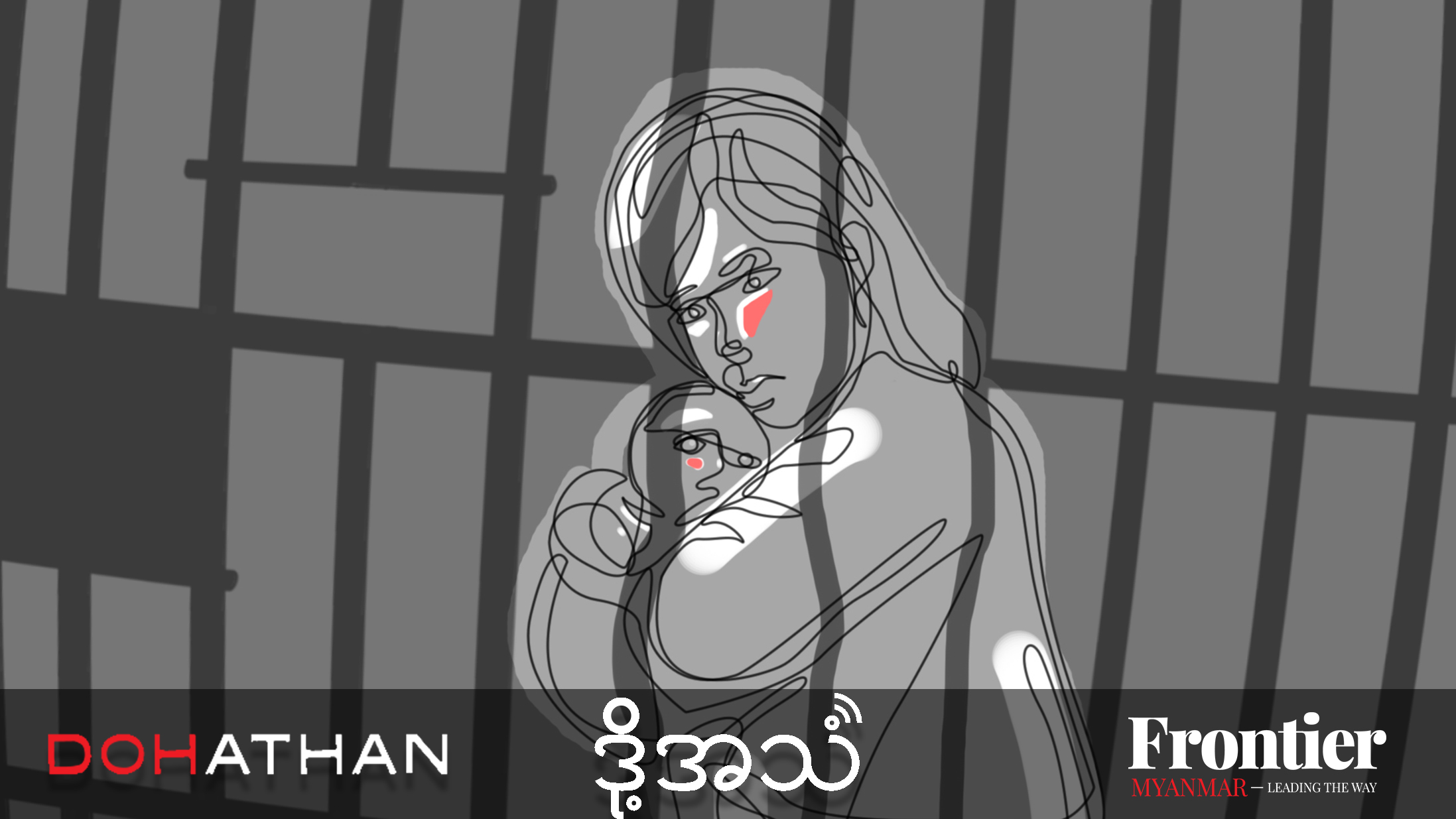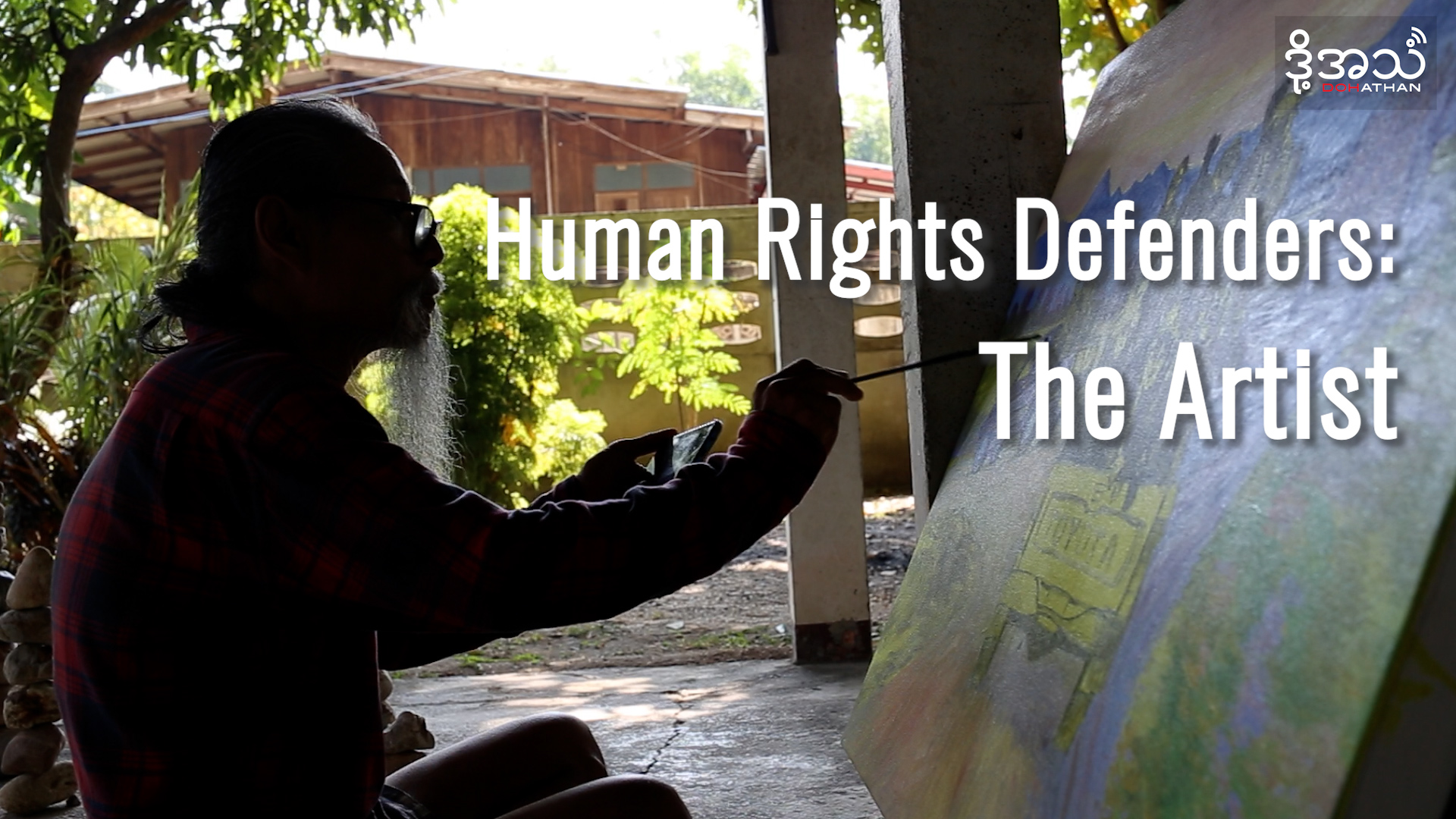By SEAN GLEESON | FRONTIER
YANGON — Just days before his expected release from detention in Mandalay, former monk U Nyi Nyi Lwin has been brought to Yangon to face charges that could keep him in prison for up to another three years.
Nyi Nyi Lwin, better known by his ordination name U Gambira, was brought before Bahan Township Court on Tuesday morning over outstanding trespass and criminal mischief charges from 2012. He has been held at Insein Prison since arriving in Yangon.
The former monk, who has been based in Thailand since 2013, was arrested and denied bail in Mandalay earlier this year for an alleged violation of immigration laws after travelling into Myanmar through Tachileik.
His Australian partner, Ms. Marie Siochana, maintains he was carrying valid Myanmar identification documents proving his continued claim to Myanmar citizenship and had crossed legally into the country. Since relocating to the northern Thai city of Chiang Mai, Nyi Nyi Lwin had travelled to and from Myanmar several times without incident.
Support more independent journalism like this. Sign up to be a Frontier member.
January and sentenced to six months’ imprisonment in April, Nyi Nyi Lwin was due to be released on July 1. Robert San Aung told Frontier on Tuesday that his client would remain behind bars at Insein until his next court appearance on July 4.
Nyi Nyi Lwin has battled with recurring physical and mental illness since his first arrest in November 2007, and rights groups have repeatedly called for his release.
Vani Sathisan, an international legal adviser for the International Commission of Jurists, said that authorities had not demonstrated the necessity of holding Nyi Nyi Lwin on remand ahead of his next hearing.
“The burden rests on the State to establish that it is necessary and proportionate to deprive an individual of their liberty, including pending trial,” she told Frontier. “The prosecution failed to prove this in Gambira’s previous trial and we hope that prosecutors will reflect on that mistake and exercise their discretion now to avoid selective prosecutions.”
Old charges
Nyi Nyi Lwin was one of the most prominent faces of the so-called “Saffron Revolution” in 2007, a series of nationwide monk-led protests against the former military junta that were eventually dispersed by a violent government crackdown.
Sentenced to 63 years’ imprisonment, Nyi Nyi Lwin was released in January 2012 as part of an amnesty ordered by former President U Thein Sein.
The following month, he raised the ire of police and the government-backed State Sangha Mahayanaka authority for leading a group of monks into several monasteries that had been closed after the 2007 protests.
Some weeks later, a settlement was reached allowing the monasteries to reopen, but in December Nyi Nyi Lwin was indicted on separate trespass charges in Bahan, Thanlyin and Thinganyun township courts.
Bailed from Thanlyin Court a fortnight later, he speculated he had been arrested to stop him from joining protests against the controversial Letpadaung copper mine in Monywa, where dozens of monks had been injured by police firing white phosphorous rounds a few days before he was apprehended.
None of the three cases progressed before Nyi Nyi Lwin relocated to Thailand six months later. Frontier could not reach Thanlyin Police Station for comment on Tuesday and it is unclear if the case is ongoing.
Tuesday’s charges relate to his entrance of the Sasana Gonyi and Sasana Sakepan monasteries in the compound of the Chaukhtutgyi Pagoda, home to the famed Reclining Buddha statue on Bahan’s Shwegonedaing Rd.
Nyi Nyi Lwin could also face separate court appearances for illegal trespass at Thinganyun Township’s Maggin Monastery, charges that date from the same period.
In a March report, Amnesty International released a report drawing attention to the practice of bringing criminal charges against political activists across different township courts, which it said had become a “common pattern” of the criminal justice system under the Thein Sein government.
“Charging individuals for the same offence in multiple townships is contrary to provisions in Myanmar’s Code of Criminal Procedure,” Amnesty’s report said. “This tactic appears to be employed by the authorities with the sole aim of targeting human rights defenders, leaders of peaceful protests and political activists in order to increase their terms of imprisonment.”


